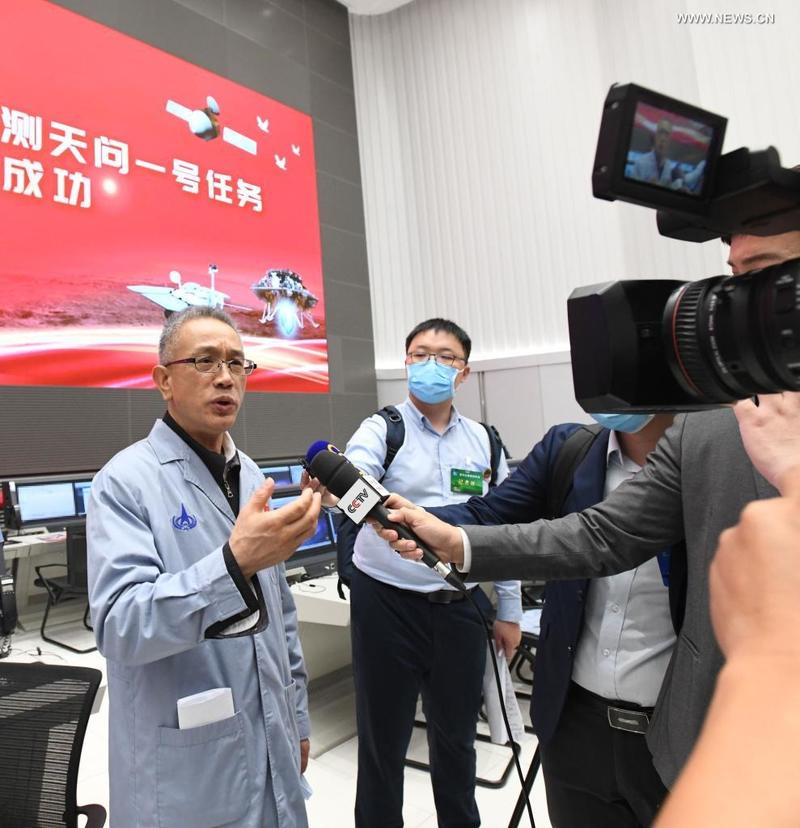 Zhang Rongqiao, chief designer of China's first Mars exploration mission, speaks to reporters, on May 15, 2021. (PHOTO / XINHUA)
Zhang Rongqiao, chief designer of China's first Mars exploration mission, speaks to reporters, on May 15, 2021. (PHOTO / XINHUA)
Zhang Rongqiao, chief designer of China's first interplanetary endeavor-the Tianwen 1 Mars mission-was named on Thursday by the top scientific journal Nature as one of the 10 people "who mattered in science" this year.
The annual list, published on the journal's website, said that Zhang is an engineer who led "China's first successful Mars mission, which reached the planet this year and landed a rover on its surface".
Launched in July 2020 from the Wenchang Space Launch Center in Hainan province, the Tianwen 1 robotic probe, named after an ancient Chinese poem, traveled a total of 475 million kilometers and carried out several trajectory maneuvers before entering Martian orbit on Feb 10.
After more than three months of preparations, a landing capsule released by the probe descended through the Martian atmosphere in an extremely challenging landing process and finally touched down on the planet on May 15, making China the second country, after the United States, to have successfully conducted a landing on the surface of Mars.
In a congratulatory letter after the landing, President Xi Jinping said that the Tianwen 1 mission had left the nation's first mark on Mars.
The president called Tianwen 1's arrival on Mars a milestone for China's space industry. He said that Chinese space workers' achievements had earned the nation a leading place in the global arena of interplanetary expedition, and that their contributions will live forever in the memory of the country and its people.
On May 22, the Chinese rover Zhurong became the sixth vehicle to travel on the Martian surface, following five predecessors from the US.
As of Thursday, the 1.85-meter-tall, 240-kilogram Zhurong had operated on the Martian surface for 208 days-far outliving its three-month life expectancy.
The rover had traveled more than 1,300 meters and obtained at least 10 gigabytes of data, according to mission controllers at the China National Space Administration, who added that it still has sufficient energy and is in good condition.
Born in March 1966 in Qimen county, Anhui province, Zhang studied at local schools until he went to Xidian University in Shaanxi province in 1982. In 1988, he received a bachelor's degree and was admitted as a postgraduate student by the China Academy of Space Technology in Beijing.
After graduating in 1991, Zhang started his career at the academy's Beijing Institute of Satellite Information Engineering and gradually moved up through professional ranks to eventually become the institute's head.
In 2004, he was named chief engineer of the Lunar Exploration Center under the State Administration of Science, Technology and Industry for National Defense and has worked there since then.
Zhang has also taken part in China's lunar exploration and high-resolution Earth observation satellite programs.


